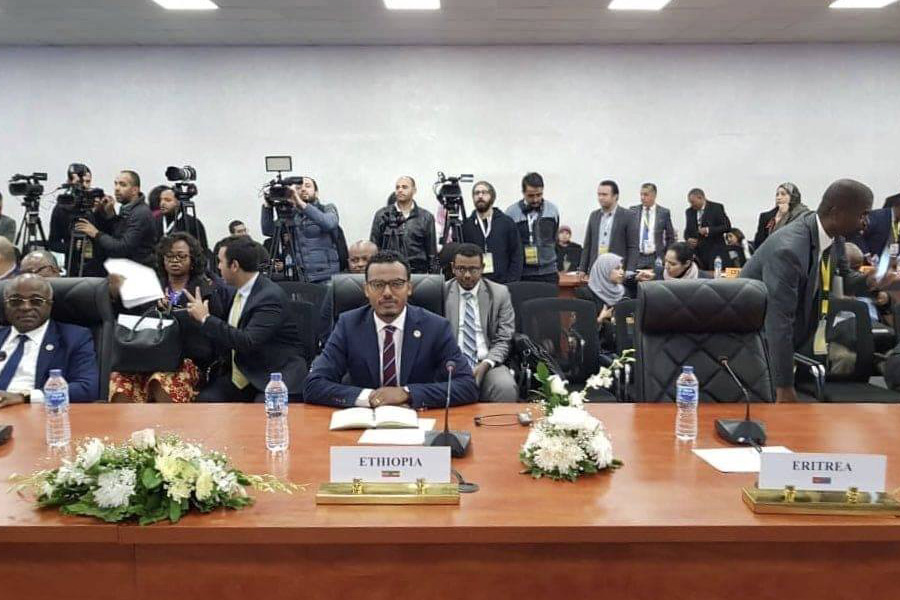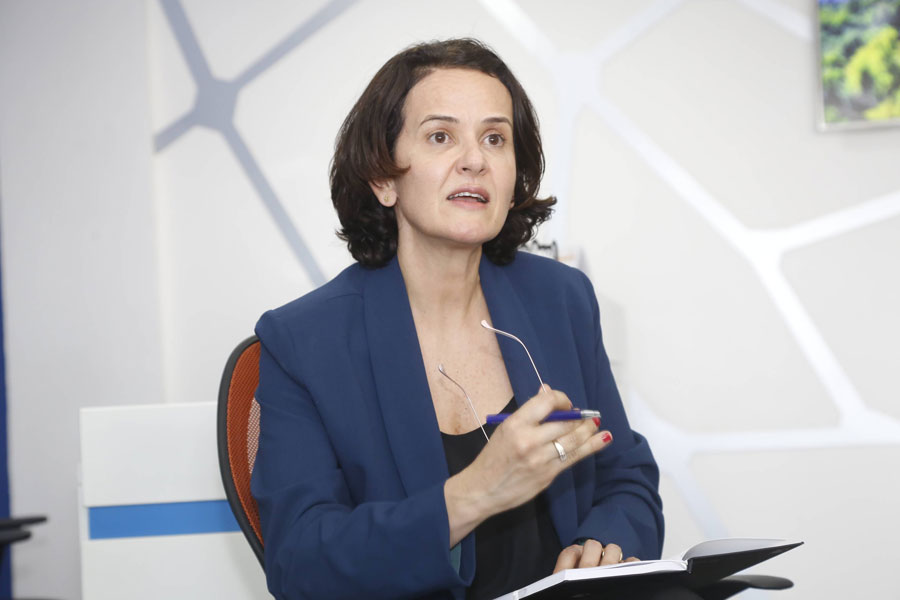
Fortune News | Oct 23,2018
Apr 10 , 2021
By Leilt Eshetu
Just like a daily routine – think drinking coffee – the news of the death of our fellow citizens stripped away of their dignity has, unfortunately, become normalised.
It has become too familiar these days. Every time something hard to fathom happens, we read regular press releases: “Rest in Peace”, “We will keep you in our prayers,” and even “Long Live Ethiopia.” Instead, what we needed was and remains to be clarity from those with state power.
Where is the Attorney General or other relevant investigating bodies explaining exactly what happened and who is being held to account for these atrocious crimes and giving detailed accounts instead of vague references here and there? What happened to our parliament and officials? How come they are not asking for clarity? Who will be paying the price for the lost souls of Ethiopian children, women and men?
The past three years were supposed to be a time of transition from an unstable, violent and non-democratic system to a steadier one, filled with hope and peace. Most Ethiopians in the diaspora moved back excited by the prospect of serving their country and joining the wide-ranging democratic reforms that were proposed.
Instead, the transition has been filled with constant turmoil and uncertainty in which the ugly side of Ethiopia has reared its face. Of course, it would have been naïve to expect a smooth and easy transition. But this does not mean that it must consume us. Those that hold state power were supposed to mitigate the blowback from the seeds we sowed in the past, with the hope of avoiding a bleak future.
The government must not forget its social contract; the pillar for establishing a state. Citizens pay their taxes and relinquish personal freedoms – especially in times of states of emergency – so that the government provides security and protection. A government has an agreement with its citizens; if it is broken, it will be hard for either one to exist.
Ill-fated Ethiopians are sadly still suffering from the implications of a broken social contract. We are left without peace, a worsening economy due to inflation and courts too weak to protect the vulnerable.
Worse still, it is confusing to see fellow Ethiopians relatively undisturbed because no one is taking or claiming responsibility for the lives lost. We seem to be systematically desensitised to violence. The shame in the nail-biting when someone asks, ‘Who did it?’ is getting old like the country itself.
The combined failures of the government to act proportionally and the silent majority to speak up against injustices have meant that we have succumbed to trivial bickering and political jostling. We are all the while avoiding the main issue: building inclusive and equal citizenship in Ethiopia. It is easy to be silent and pessimistic, covered with the stench of disintegration, than to discuss how we can rebuild our tittering systems and institutions, bring about accountability and protect our most vulnerable.
Are we not ashamed enough? Have we not humiliated ourselves thoroughly? Do we not deserve better? Have we truly become a lost generation? Or is this just politics?
We must wake up and smell the stench of the dead bodies that have infested our lands. The stakes are high this time around. We also have no one to blame except ourselves if we do not fight for the change we had believed in three years ago.
There may yet be a way out for us. The finger-pointing has gone for long enough. Let us start putting our words where our mouths are by voting, a possible step in helping us move in the right direction. By choosing those we want to serve us – or the closest thing to them – we can finally start drafting the social contract that we have been envisioning for long. Thus, enough with the complaining and just go vote.
PUBLISHED ON
Apr 10,2021 [ VOL
22 , NO
1093]


Fortune News | Oct 23,2018

Fortune News | Oct 15,2022

Radar | Sep 10,2022

Exclusive Interviews | Nov 06,2021

My Opinion | Jul 06,2019

Radar | May 25,2019

Covid-19 | Apr 08,2020

Fortune News | Aug 08,2020

Commentaries | Jul 13,2019

Radar | Jul 15,2023

Photo Gallery | 174633 Views | May 06,2019

Photo Gallery | 164856 Views | Apr 26,2019

Photo Gallery | 155067 Views | Oct 06,2021

My Opinion | 136699 Views | Aug 14,2021
Editorial | Oct 11,2025

Dec 22 , 2024 . By TIZITA SHEWAFERAW
Charged with transforming colossal state-owned enterprises into modern and competitiv...

Aug 18 , 2024 . By AKSAH ITALO
Although predictable Yonas Zerihun's job in the ride-hailing service is not immune to...

Jul 28 , 2024 . By TIZITA SHEWAFERAW
Unhabitual, perhaps too many, Samuel Gebreyohannes, 38, used to occasionally enjoy a couple of beers at breakfast. However, he recently swit...

Jul 13 , 2024 . By AKSAH ITALO
Investors who rely on tractors, trucks, and field vehicles for commuting, transporting commodities, and f...

Oct 11 , 2025
Ladislas Farago, a roving Associated Press (AP) correspondent, arrived in Ethiopia in...

Oct 4 , 2025
Eyob Tekalegn (PhD) had been in the Governor's chair for only weeks when, on Septembe...

Sep 27 , 2025
Four years into an experiment with “shock therapy” in education, the national moo...

Sep 20 , 2025
Getachew Reda's return to the national stage was always going to stir attention. Once...

Oct 12 , 2025
Tomato prices in Addis Abeba have surged to unprecedented levels, with retail stands charging between 85 Br and 140 Br a kilo, nearly triple...

Oct 12 , 2025 . By BEZAWIT HULUAGER
A sweeping change in the vehicle licensing system has tilted the scales in favour of electric vehicle (EV...

A simmering dispute between the legal profession and the federal government is nearing a breaking point,...

Oct 12 , 2025 . By NAHOM AYELE
A violent storm that ripped through the flower belt of Bishoftu (Debreziet), 45Km east of the capital, in...